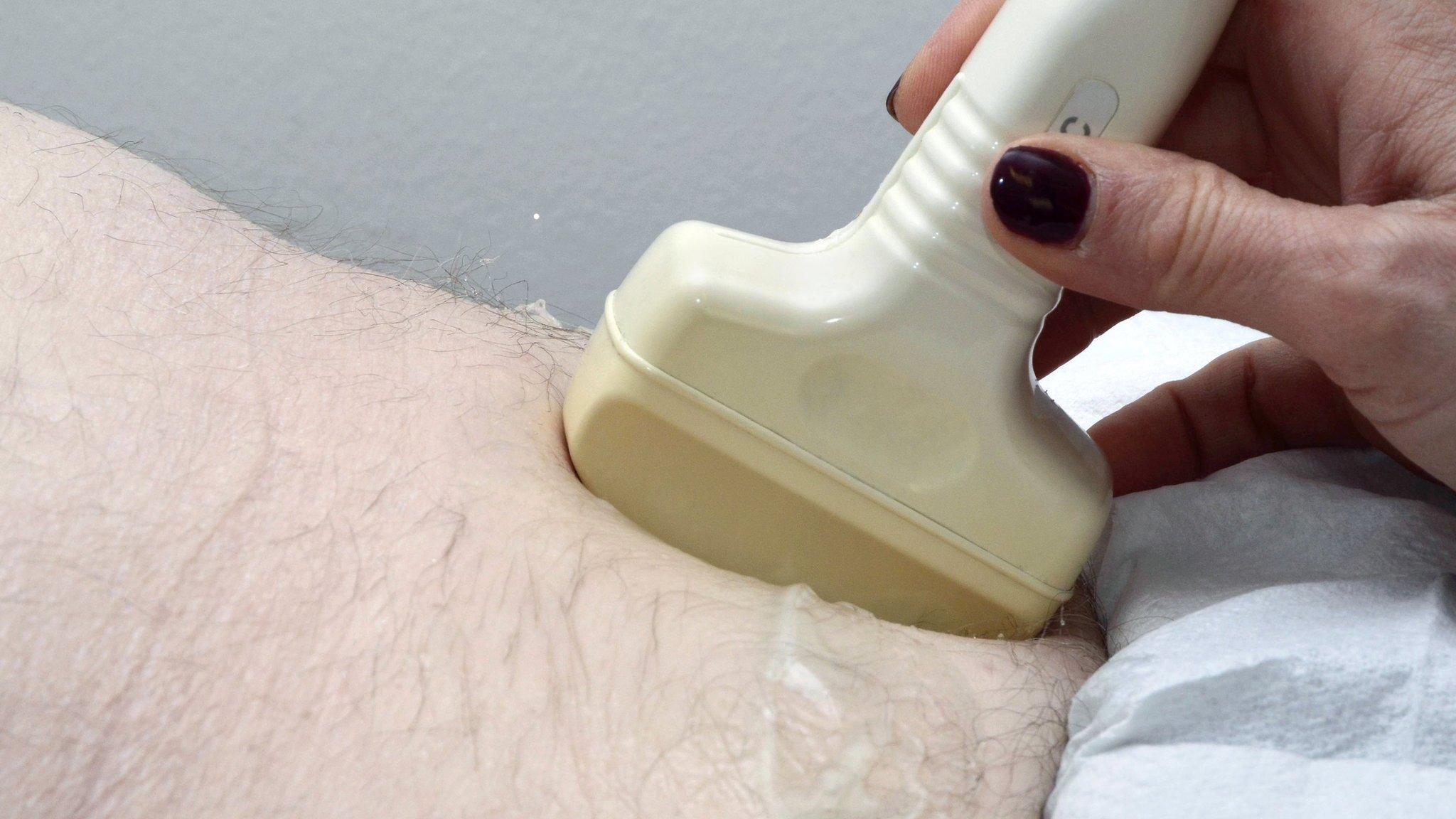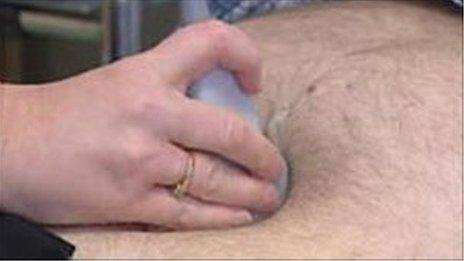Aneurysm screening 'helps thousands'
- Published

Simple ultrasound scans have helped detect more than 10,000 aneurysms - potentially serious blood vessel swellings - since a now UK-wide screening programme started in 2009.
If left untreated larger abdominal aortic aneurysms (AAA) - where the main blood vessel in the body weakens and expands - can be deadly.
But because many do not have symptoms, people may be unaware they have an AAA until they fatally burst.
A million men have been screened.
Surgical repair
Until 2009, the UK had one of the highest death rates for aortic abdominal aneurysms in Europe.
Now invitations for AAA screening - which involve a simple ultrasound scan to look for weaknesses and enlargements of the aorta - are sent to every man in England aged 65.
And they have been rolled out across the UK since the end of 2013.
Under the programme, 2,000 men with large aneurysms (the most dangerous) have undergone successful surgery.
People with aortic vessels that are swollen to a lesser extent are often monitored and may be called back for further scans.
Surgery is only offered in cases where benefits outweigh the risks.
Peter Norris, 66, from London, had a large aneurysm that was picked up during a routine screening scan and had successful surgery.
He said: "At first I thought about not bothering to go to my screening appointment as I wasn't suffering from symptoms, but I now realise that it saved my life.
"I was shocked when the screening technician found an aneurysm that was 6.7cm [2.6in] wide and I was referred for surgery to fix it.
"I now feel very lucky to be fully recovered and living life to the full."
Dr Anne Mackie, director of screening at Public Health England, said: "It is great news that one million 65-year-old men have now been screened for AAA.
"The programme has been a major public health success story and has proved to be crucial in detecting and treating large aneurysms, leading to the prevention of premature deaths in men aged 65 years and over."
Public Health England says after 10 years of screening, half of all ruptures should be prevented, saving an estimated 1,500-2,000 lives a year - though the data to support this is not yet available.
Aortic aneurysms are less common in women and current evidence suggests offering screening would do more harm than good.
But an official review is under way to see if women should be included in future screening programmes.
- Published27 November 2012

- Published12 October 2012
